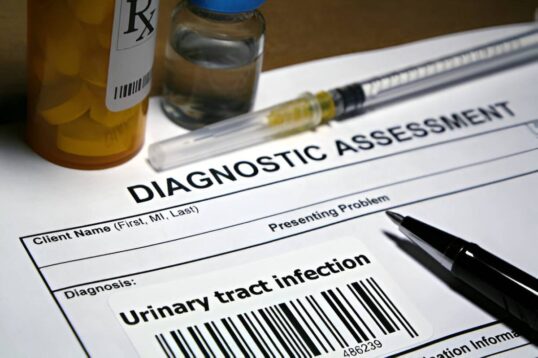Tips for Preventing Bad Breath and Boosting Confidence
Bad breath, also known as halitosis, is a common concern that can affect anyone at any age. While occasional bad breath is normal, persistent odours can dent your confidence and point to underlying oral health issues. The good news? With a few simple changes to your daily routine, you can prevent bad breath and maintain a fresh, healthy mouth.
In this guide, we’ll explore practical tips to tackle bad breath and help you feel confident in any situation.
Understand the Causes of Bad Breath
To effectively prevent bad breath, it’s important to understand what causes it. The most common culprits include:
- Poor Oral Hygiene: Neglecting brushing and flossing allows food particles and bacteria to accumulate, producing odours.
- Dry Mouth: Saliva plays a crucial role in washing away bacteria. A lack of saliva, often caused by dehydration or certain medications, can lead to bad breath.
- Dietary Choices: Foods like garlic, onions, and spicy dishes release volatile compounds that contribute to unpleasant smells.
- Medical Conditions: Issues like sinus infections, gastrointestinal problems, or gum disease can also cause bad breath.
- Tobacco Use: Smoking and chewing tobacco leave a lingering odour and contribute to oral health issues.
If bad breath persists despite good oral hygiene, it may indicate an underlying issue that requires professional attention. Visiting a dentist in Narre Warren can help identify the root cause and provide personalised solutions.
Tip 1: Brush and Floss Regularly
Good oral hygiene is the foundation for preventing bad breath. Brush your teeth at least twice a day and floss once daily to remove food particles and plaque that contribute to odours.
Brushing Tips:
- Use a Fluoride Toothpaste: Fluoride strengthens enamel and prevents decay, reducing the risk of bad breath.
- Brush Your Tongue: Bacteria often accumulate on the tongue, so use a toothbrush or tongue scraper to clean it thoroughly.
- Replace Your Toothbrush: Change your toothbrush every three months or sooner if the bristles are frayed.
Consistent brushing and flossing minimise bacteria build-up and keep your breath fresh.
Tip 2: Stay Hydrated
Dry mouth is a common cause of bad breath, so staying hydrated is crucial. Drinking plenty of water throughout the day helps maintain saliva flow and washes away food particles and bacteria.
Additional Tips for Hydration:
- Chew sugar-free gum to stimulate saliva production.
- Avoid excessive caffeine and alcohol, which can contribute to dry mouth.
- Consider a humidifier if you breathe through your mouth or sleep in a dry environment.
Proper hydration not only prevents bad breath but also supports overall health.
Tip 3: Watch Your Diet
What you eat can have a significant impact on your breath. While some foods are known to cause odours, others can help neutralise bad breath.
Foods to Limit:
- Garlic, onions, and spices that release sulphur compounds.
- Sugary snacks, which fuel bacteria growth.
- Acidic drinks like coffee, soda, and citrus juices that dry out the mouth.
Breath-Friendly Foods:
- Crisp Fruits and Vegetables: Apples, carrots, and celery stimulate saliva and clean teeth naturally.
- Herbs: Chewing parsley, mint, or basil can mask odours and provide a refreshing scent.
- Probiotic-Rich Foods: Yoghurt and fermented foods promote healthy bacteria in the mouth and gut.
Making mindful dietary choices can significantly improve your breath and oral health.
Tip 4: Rinse with Mouthwash
Mouthwash is a quick and easy way to freshen your breath, but not all mouthwashes are created equal. Choose an alcohol-free, antibacterial mouthwash to target odour-causing bacteria without drying out your mouth.
How to Use Mouthwash Effectively:
- Swish the mouthwash around your mouth for 30 seconds after brushing and flossing.
- Avoid eating or drinking for 30 minutes to maximise its benefits.
- For a natural alternative, try rinsing with a mixture of warm water and salt.
Incorporating mouthwash into your routine can give you an extra boost of freshness and confidence.
Tip 5: Quit Smoking and Tobacco Use
Tobacco products not only stain your teeth but also leave a persistent, unpleasant smell that’s hard to mask. Quitting smoking or chewing tobacco is one of the most impactful steps you can take to improve your breath and overall health.
Benefits of Quitting:
- Fresher breath and healthier gums.
- Reduced risk of gum disease and oral cancer.
- Improved sense of taste and smell.
If you’re struggling to quit, consider seeking support from a healthcare professional or a smoking cessation program.
Tip 6: Visit Your Dentist Regularly
Regular dental check-ups are essential for maintaining fresh breath and a healthy mouth. Dentists can identify and treat issues like gum disease, cavities, or plaque build-up that may contribute to bad breath.
What to Expect During a Dental Visit:
- A thorough cleaning to remove tartar and plaque.
- An examination to detect signs of gum disease or decay.
- Personalised advice on improving your oral hygiene routine.
Scheduling visits every six months with your dentist ensures that minor problems don’t turn into major concerns.
Tip 7: Address Underlying Health Issues
Persistent bad breath can sometimes be a symptom of an underlying medical condition. If oral hygiene improvements don’t resolve the issue, consider consulting your healthcare provider.
Common Conditions Linked to Bad Breath:
- Sinus Infections: Blocked sinuses can cause bacteria to accumulate, leading to foul-smelling breath.
- Acid Reflux: Gastrointestinal issues can bring odours from the stomach up to the mouth.
- Diabetes: Poorly managed diabetes can lead to fruity or acetone-like breath.
By addressing these health issues, you can improve both your breath and your overall wellbeing.
Tip 8: Freshen Up On the Go
Sometimes, bad breath strikes when you least expect it. Carrying travel-sized oral care essentials can help you stay fresh throughout the day.
Handy Items to Keep on Hand:
- Sugar-free mints or gum for a quick refresh.
- A mini toothbrush and toothpaste for post-meal cleaning.
- Disposable mouthwash strips for instant freshness.
Having these items in your bag or desk ensures you’re always prepared to tackle bad breath confidently.
Boost Your Confidence with a Fresh Smile
Bad breath can be embarrassing, but with the right habits, it’s entirely preventable. By maintaining a consistent oral hygiene routine, staying hydrated, and making mindful dietary choices, you can keep your breath fresh and your confidence high.
If you’re still struggling with persistent bad breath, don’t hesitate to consult a professional. A dentist can help identify the cause and recommend tailored treatments to address your concerns.
Remember, fresh breath isn’t just about oral health—it’s about feeling confident and ready to take on the world. With these simple tips, you’re well on your way to achieving both!


